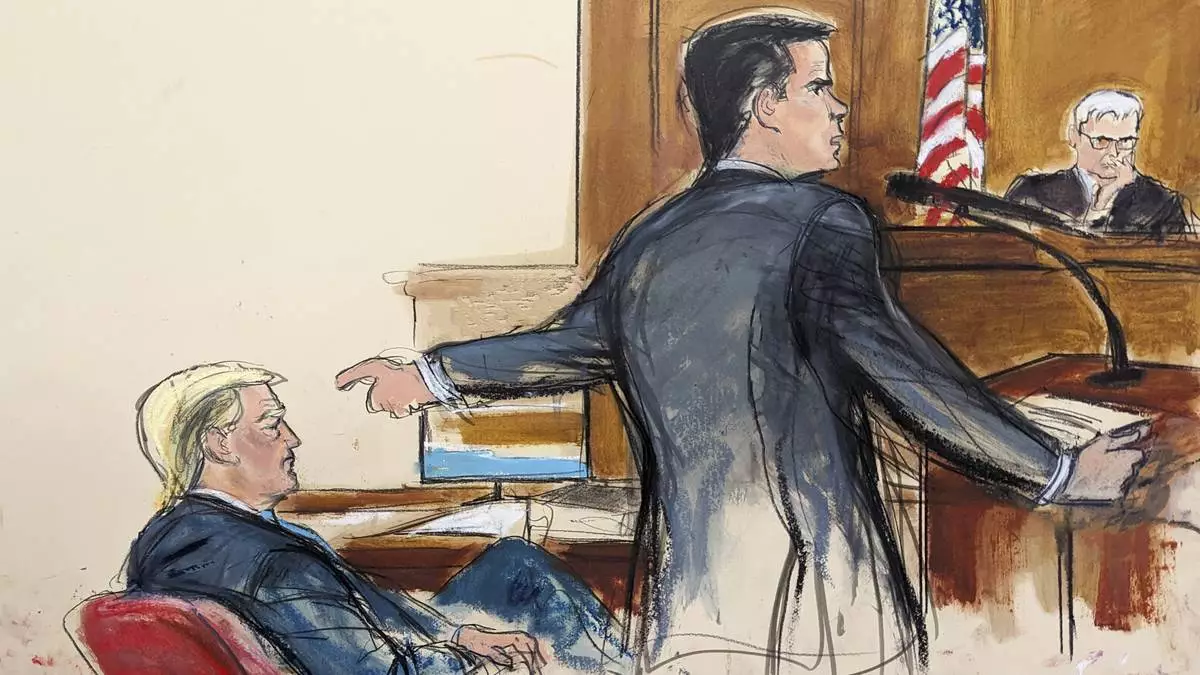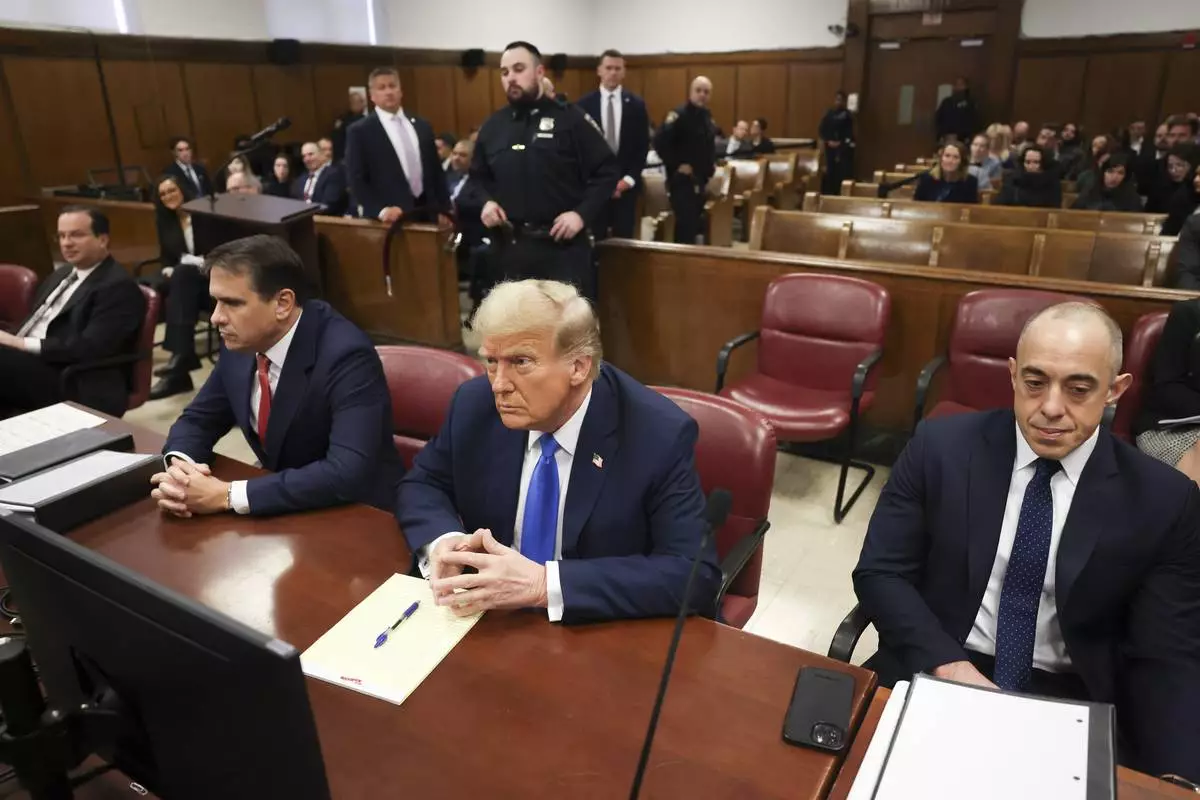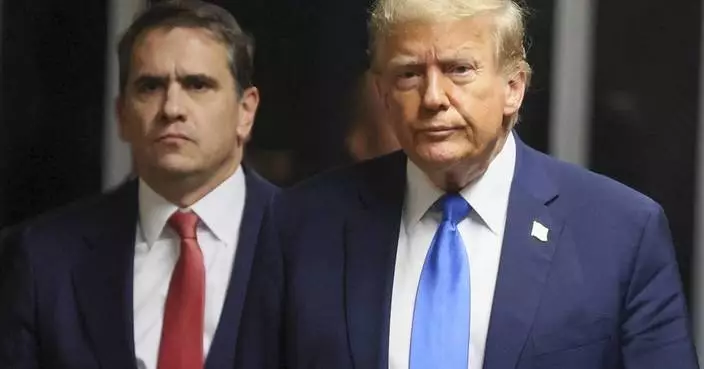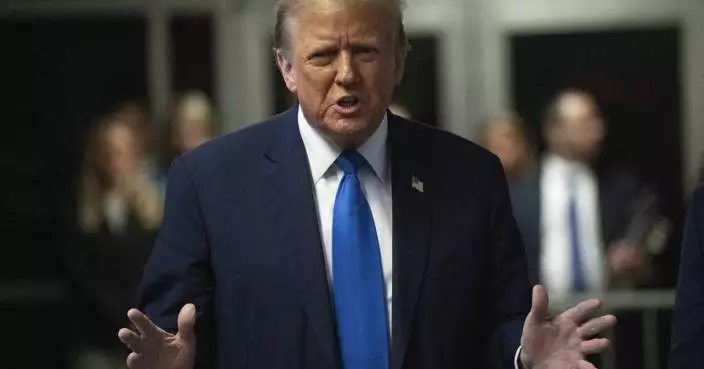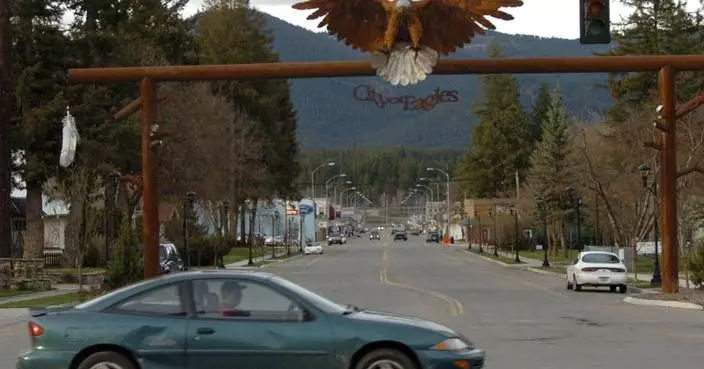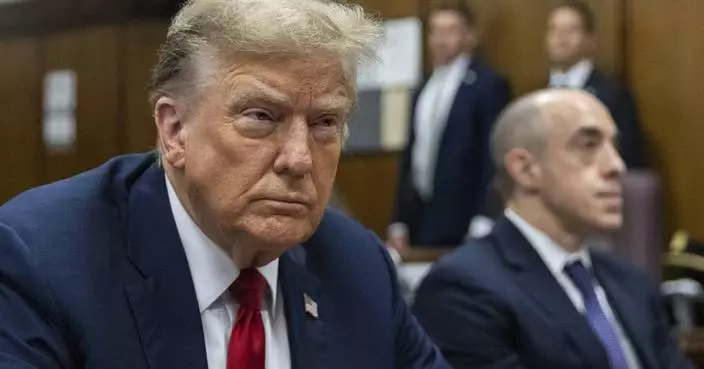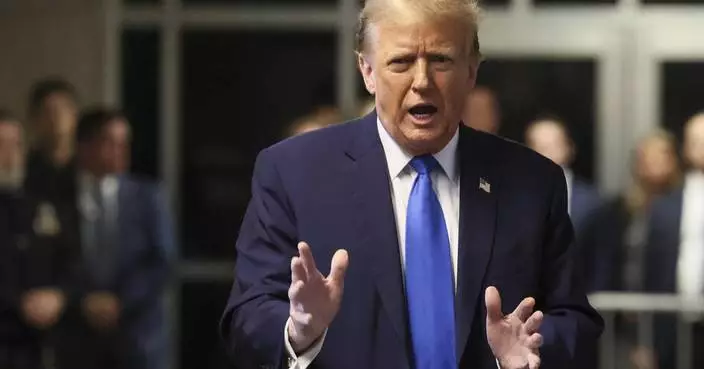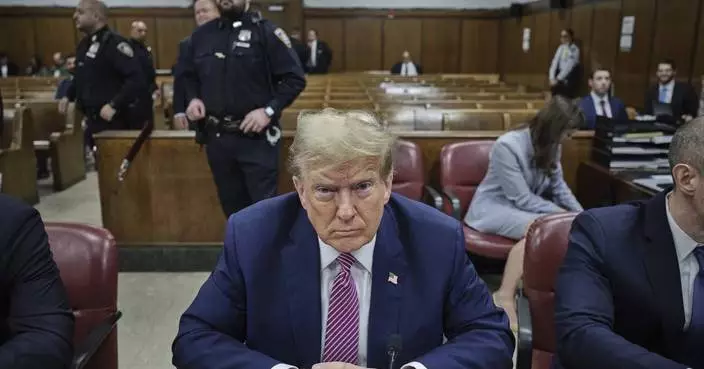President Donald Trump has branded his latest attempt to discredit the special counsel's Russia investigation as "spygate," part of a newly invigorated strategy embraced by his Republican colleagues to raise suspicions about the probe that has dogged his presidency since the start.
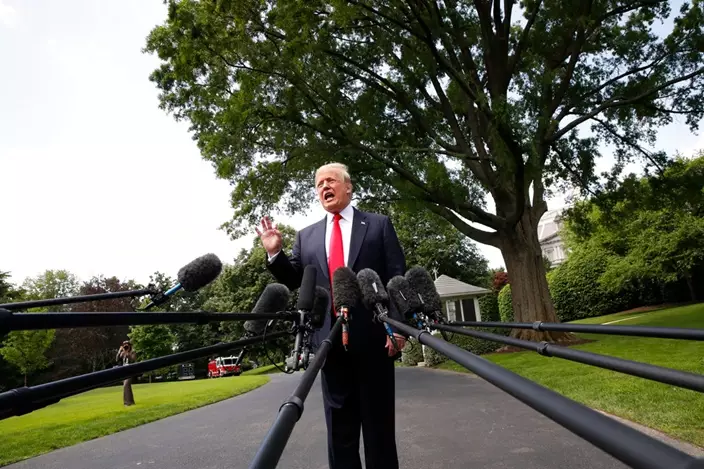
President Donald Trump speaks to the media on the South Lawn of the White House in Washington, Wednesday, May 23, 2018, en route to a day trip to New York. Trump will hold a roundtable discussion on Long Island on illegal immigration and gang violence that the White House is calling a "national call to action for legislative policy changes." (AP Photo/Jacquelyn Martin)
Trump now is zeroing in on — and at times embellishing — reports that a longtime U.S. government informant approached members of his 2016 campaign during the presidential election in a possible bid to glean intelligence on Russian efforts to sway the election. He tweeted Wednesday morning that the FBI has been caught in a "major SPY scandal."
Trump's latest broadsides set the stage for an unusual decision by the White House to arrange a briefing about classified documents for just two Republican House members, both Trump allies, in a meeting Thursday, as Trump and his supporters in Congress press for information on the outside informant.
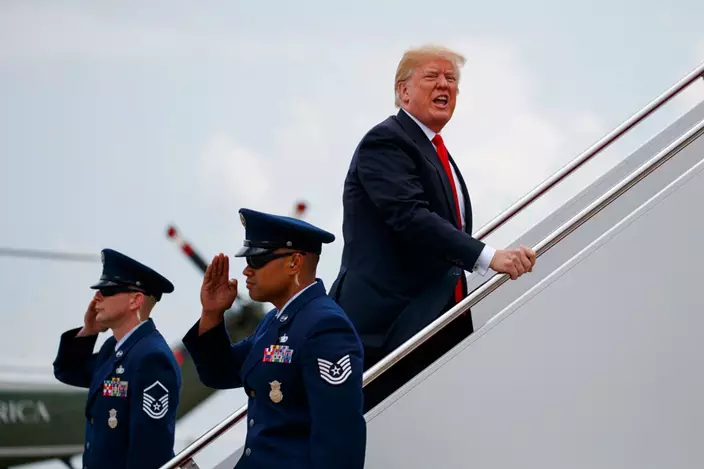
President Donald Trump yells to reporters as he boards Air Force One for a trip to New York to discuss immigration policy, Wednesday, May 23, 2018, in Andrews Air Force Base, Md. (AP Photo/Evan Vucci)
After Democratic complaints and negotiations that went into the late evening Wednesday, the White House said it would also give a second briefing to a group of lawmakers known as the "Gang of Eight" immediately after the briefing for the two House Republicans. The "Gang of Eight" includes the top Republicans and Democrats in each chamber and the top Republicans and Democrats on the House and Senate intelligence committees. According to the Justice Department, White House Chief of Staff John Kelly and Deputy Attorney General Rod Rosenstein were also added to the roster after not being included on the original list.
It remains unclear what, if any, spying was done. The White House has given no evidence to support Trump's claim that the Obama administration was trying to spy on his 2016 campaign for political reasons. It's long been known that the FBI was looking into Russian meddling during the campaign and that part of that inquiry touched on the Trump campaign's contacts with Russian figures.
Trump has told confidants in recent days that the revelation of an informant was potential evidence that the upper echelon of federal law enforcement has conspired against him, according to three people familiar with his recent conversations but not authorized to discuss them publicly. Trump told one ally this week that he wanted "to brand" the informant a "spy," believing the more nefarious term would resonate more in the media and with the public.
He went on to debut the term "Spygate" on Wednesday, despite its previous associations with a 2007 NFL scandal over videotaping coaches.
Democrats said Wednesday that the briefing — held as special counsel Robert Mueller investigates Trump's campaign and whether it was involved in Russian meddling in the U.S. election — was highly inappropriate and asked for the "Gang of Eight" briefing instead of Thursday's GOP-only meeting. After negotiations with leaders on Capitol Hill, the White House announced the additional bipartisan meeting but said the original briefing would go on as well.
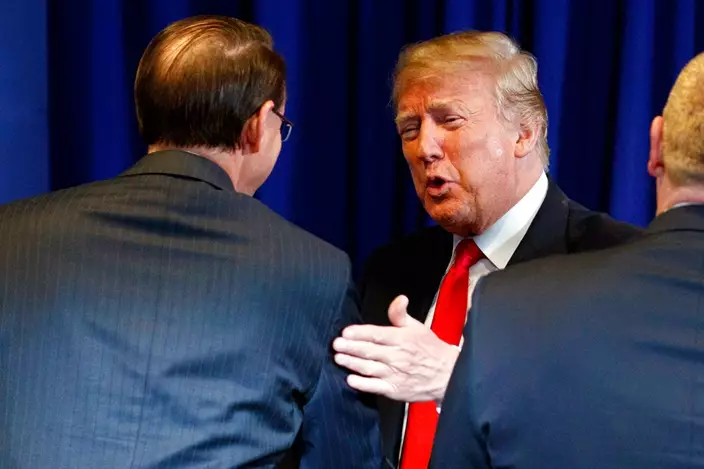
Immigration and Customs Enforcement director Thomas Homan, right, watches as Deputy Attorney General Rod Rosenstein shakes hands with President Donald Trump during a roundtable on immigration policy at Morrelly Homeland Security Center, Wednesday, May 23, 2018, in Bethpage, N.Y. (AP Photo/Evan Vucci)
The two House lawmakers — Intelligence Committee Chairman Devin Nunes and Oversight and Government Reform Chairman Trey Gowdy — will attend both briefings, as will Kelly, Rosenstein, FBI Director Christopher Wray and National Intelligence Director Dan Coats. The second meeting will include all of those people plus Senate Majority Leader Mitch McConnell, Senate Democratic Leader Chuck Schumer, House Speaker Paul Ryan and House Democratic Leader Nancy Pelosi. Senate Intelligence Committee Chairman Richard Burr will also attend, along with the top Democrat on the Senate intelligence panel, Sen. Mark Warner, and the top Democrat on the House intelligence panel, Rep. Adam Schiff.
Nunes, an ardent Trump supporter, originally demanded the information on an FBI source in the Russia investigation. And Trump took up the cause as the White House tries to combat the threat posed by Mueller's investigation.
Trump escalated his efforts to discredit that investigation Wednesday, tweeting: "Look how things have turned around on the Criminal Deep State. They go after Phony Collusion with Russia, a made up Scam, and end up getting caught in a major SPY scandal the likes of which this country may never have seen before! What goes around, comes around!"
Former FBI Director James Comey, who was fired by Trump last year, tweeted Wednesday morning that the agency's use of secret informants was "tightly regulated and essential to protecting the country."
"Attacks on the FBI and lying about its work will do lasting damage to our country," he said. "How will Republicans explain this to their grandchildren?
Trump told reporters in response: "What I'm doing is a service to this country and I did a great service to this country by firing James Comey."
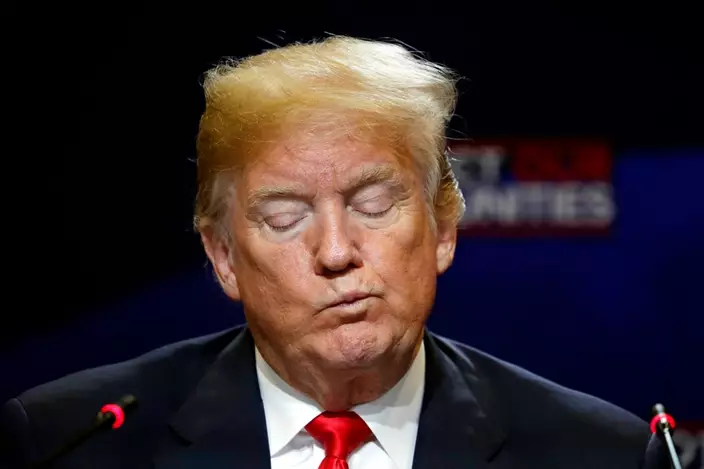
President Donald Trump pauses as he speaks during a roundtable on immigration policy at Morrelly Homeland Security Center, Wednesday, May 23, 2018, in Bethpage, N.Y. (AP Photo/Evan Vucci)
The back and forth between Congress and the Justice Department over the Nunes request — one of many over the course of the Russia investigation — has been simmering for weeks.
The department originally rejected Nunes' appeal, writing in a letter in late April that his request for information "regarding a specific individual" could have severe consequences, including potential loss of human life. Negotiations over the information stalled, but restarted when Trump demanded in a tweet Sunday that the Justice Department investigate "whether or not the FBI/DOJ infiltrated or surveilled the Trump Campaign for Political Purposes."
The Justice Department agreed by expanding an open, internal investigation to determine whether there was any politically motivated surveillance. And the White House said Kelly would organize the meeting with House lawmakers to discuss the documents, although he and other White House staffers would not be present.
The New York Times was the first to report that the FBI had an informant who met several times with Trump campaign officials who had suspicious contacts linked to Russia. No evidence has emerged to show that Obama-era authorities placed an informant inside the Trump campaign.
Separately on Wednesday, Mueller's prosecutors asked a federal judge to start the process of sentencing former Trump campaign adviser George Papadopoulos, who has been a key witness in the investigation since his plea last year to lying to the FBI.
Prosecutors had been pushing off Papadopoulos' sentencing for months as he cooperated in the probe. Information about Papadopoulos' contact with people linked to Russia during the 2016 campaign triggered the FBI counterintelligence investigation that Mueller took over.



